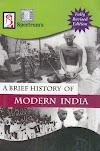Sub-Ordinate Courts, Lok Adalat and Fast Track Courts
Sub-Ordinate Courts
He must be in service of union or state (but service type is not specific)
or
He must have practices as an advocate for at least 7 years and his appointment is recommended by the State High Court.
Other judges of the Sub-ordinate court are to be appointed according to the rules formed by the governor in consultation with the High court of the state and State Public Service Commission.
Lok Adalat - Lok Adalat is also called as People's Court and is an informal dispute settlement mechanism where disputes are settled through mutual consent and agreement reached between the disputing parties or based upon the confession in pity criminal cases.
1st formal lok adalat is established in Delhi in 1985 for which credit goes to Justice P.N. Bhagwati.
Lok Adalat were given legal status through legal service authority act 1987.
Lok Adalat enjoys all the powers of civil court and their decisions are executed in the same ways as the decision of civil court but they are not subjected to the procedural codes.
Any criminal matters, pity criminal cases and certain utility services like baking, electricity or revenue matters subjected to a maximum limit of Rs. 10 Lakh can be taken by Lok Adalat.
Lok Adalat can take up the matters based on the consent of both the parties or reference made by 1 party.
No court fee is charged for filing a matter before Lok Adalat.
Lawyers as per rules are not restricted from appearing before the Lok Adalat but their role is limited to help the party understand the issue and reach a compromise.
Judges of Lok Adalat actively participate in the proceeding and may also suggest the possible solution to the dispute.
Assigned agreement reached by the two parties is sent to the regular court for its execution (to give it a legal status).
Since, the decision of the Lok Adalat is based on mutual agreement, the decisions are binding upon the parties involved and against which no appeal can be made.
Advantages of Lok Adalat
- Lok Adalat introduced the concept of participating justice.
- It is inexpensive mechanism not only to provide justice but also to reduce large number of pending cases in the lower courts.
- Post litigation enmity between the two parties reduces in case of Lok Adalat (since the decision came after consensus).
- It introduced the concept of justice at your door step.
Fast Track Courts
To tackle with large number of pending cases 11th Finance Commission of India recommended the creation of fast track courts.
This was also on account of reason that there were more than 2 lakh under trials languishing in jail on whose upkeep government has to spend more than 400 crores annually.
The pendency is because in India judges to population ratio is very low.
11th finance commission recommended to create fast track court across India initially for a period of 5 years (2000 to 2005). The expenditure of the court was to be shared between centre and athe state.
The term of fast track court later on extended till 2010 on the initiation of the Supreme Court.
The fast track court dealt with those cases which are triable in the session court. In most of the cases, the retired session judge or additional session judge is appointed as a judge in the fast track court.
Fast track court has to dispose a matter in a fixed time period and adjournment is generally not allowed.
Criticism of the Fast Track Courts
- Working of the fast track court is criticised as it has displaced the concept of "justice delayed is justice denial" by "justice hurried is justice worried".
- Fast track court in most of the cases do not give sufficient time to defence.
- Inspite of having huge expenditure, fast track court in its first phase of operation (2000 to 2005) were able to dispose off only 50% of the cases referred to them and which is even lesser in states like UP and Bihar though successful in Southern States.
- With the retired judges heading the fast track court in most of the cases, accountability can be compromised.
- Fast track courts are also criticised that the job of the state is primarily to give justice rather than bringing down governmental expenditure.
Previous Article - High Court
Next Article - Union and its territories
Notes on other subjects
Optional Subject
Note - This is my Vision IAS Notes (Vision IAS Class Notes) and Ashutosh Pandey Sir's Public Administration Class notes. I've also added some of the information on my own.
Hope! It will help you to achieve your dream of getting selected in Civil Services Examination 👍

.png)



0 Comments